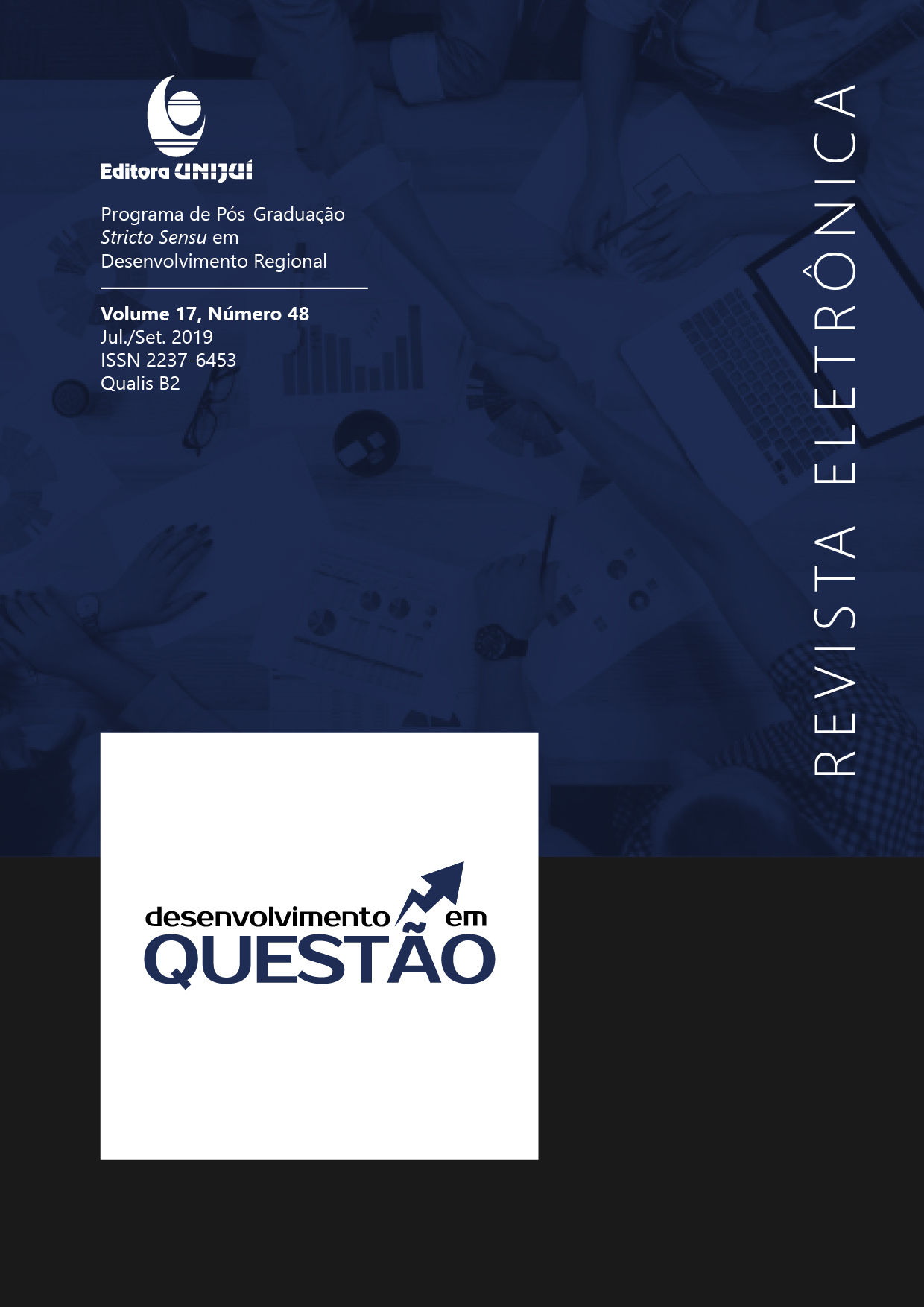O Perfil Migratório dos Egressos do Curso de Agronomia da Universidade Federal de Santa Maria, Campus Frederico Westphalen, como Fonte de Informação para a Avaliação Institucional e o Desenvolvimento Regional
DOI:
https://doi.org/10.21527/2237-6453.2019.48.282-299Palavras-chave:
Egressos, Desenvolvimento regional, Avaliação institucionalResumo
Este trabalho tem como objetivo levantar informações a respeito da migração profissional do discente egresso do curso de Agronomia da UFSM-FW como ferramenta de apoio na avaliação institucional e no desenvolvimento regional. Para cumprir o objetivo, o levantamento de dados ocorreu através de um questionário estruturado online com o uso da plataforma “Google Formulários” e de endereço de e-mail. A comunicação com os egressos foi através de redes sociais, principalmente o “Facebook”. Dos 243 formados entre 2011 e 2015, foram contatados 229 egressos e a taxa de retorno dos questionários foi de 72,43% (176 respostas). Os principais resultados demonstram que 88,07% dos egressos residiam na região Noroeste do Rio Grande do Sul e 53,41% dos egressos estão atuando profissionalmente nesta região. Além disso, os principais motivos por terem escolhido cursar o curso de Agronomia estão relacionados com a localização geográfica do campus e com o interesse pela área agrícola e agropecuária. Já os principais motivos que levaram a escolha do local de atuação profissional são a identificação com a área específica de trabalho e a remuneração. Diante dos resultados, a universidade e a região têm acesso a um maior conhecimento acerca dos profissionais da Agronomia, de forma que essas informações sirvam de ferramenta de apoio na tomada de decisão de melhorias do curso e mudanças pedagógicas, bem como no desenvolvimento da região através da inserção do Engenheiro Agrônomo (a).
Downloads
Publicado
Como Citar
Edição
Seção
Licença
Ao publicar na Revista Desenvolvimento em Questão, os autores concordam com os seguintes termos:
Os trabalhos seguem a licença Creative Commons Atribuição 4.0 Internacional (CC BY 4.0), que permite:
Compartilhar — copiar e redistribuir o material em qualquer meio ou formato;
Adaptar — remixar, transformar e criar a partir do material para qualquer fim, inclusive comercial.
Essas permissões são irrevogáveis, desde que respeitados os seguintes termos:
Atribuição — Atribuição — os autores devem ser devidamente creditados, com link para a licença e indicação de eventuais alterações realizadas.
Sem restrições adicionais — não podem ser aplicadas condições legais ou tecnológicas que restrinjam o uso permitido pela licença.
Avisos:
A licença não se aplica a elementos em domínio público ou cobertos por exceções legais.
A licença não garante todos os direitos necessários para usos específicos (ex.: direitos de imagem, privacidade ou morais).
A revista não se responsabiliza pelas opiniões expressas nos artigos, que são de exclusiva responsabilidade dos autores. O Editor, com o apoio do Comitê Editorial, reserva-se o direito de sugerir ou solicitar modificações quando necessário.
Somente serão aceitos artigos científicos originais, com resultados de pesquisas de interesse que não tenham sido publicados nem submetidos simultaneamente a outro periódico com o mesmo objetivo.
A menção a marcas comerciais ou produtos específicos destina-se apenas à identificação, sem qualquer vínculo promocional por parte dos autores ou da revista.
Contrato de Licença (para artigos publicados a partir de 2025): Os autores mantêm os direitos autorais sobre seu artigo, e concedem a Revista Desenvolvimento em Questão o direito de primeira publicação.











